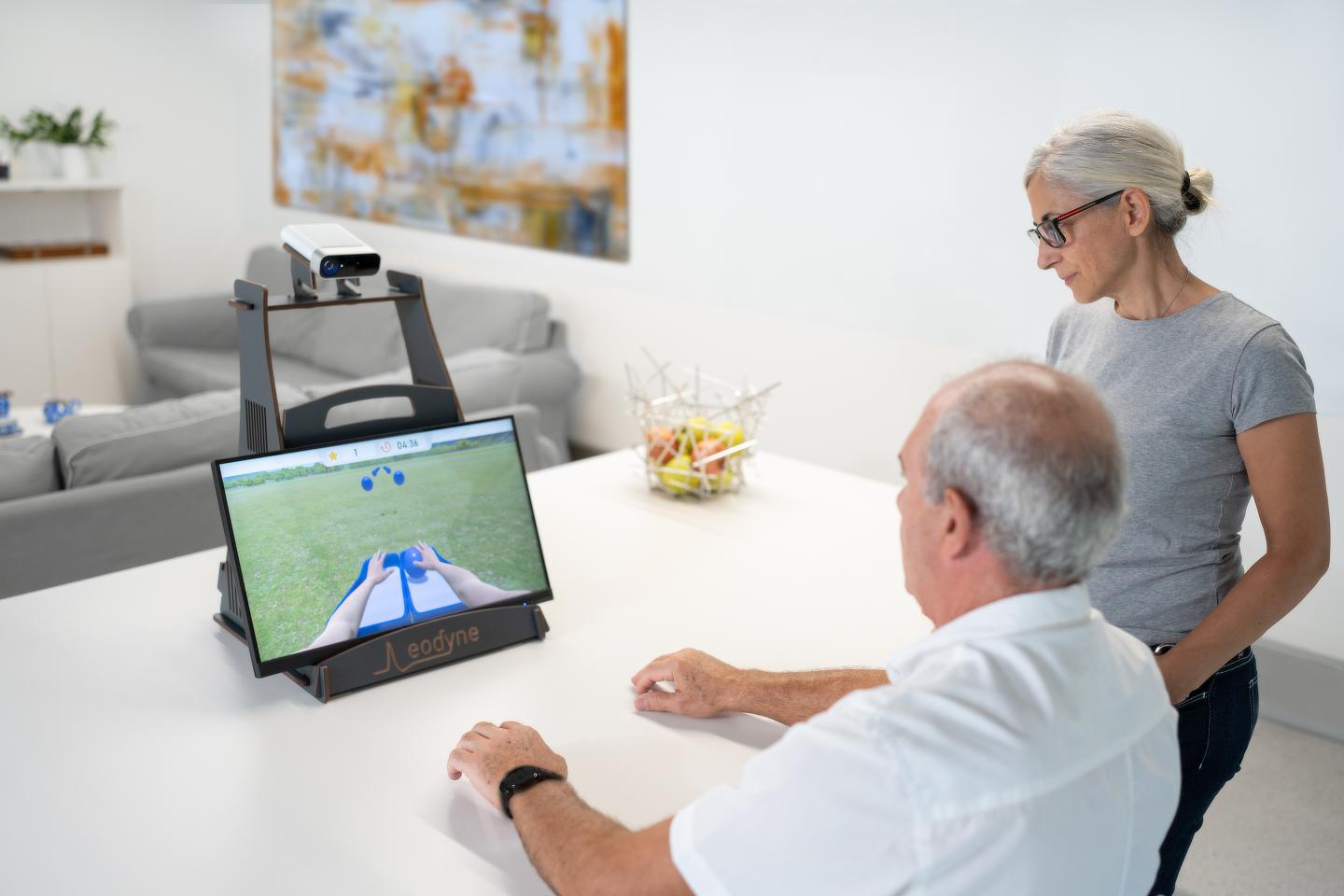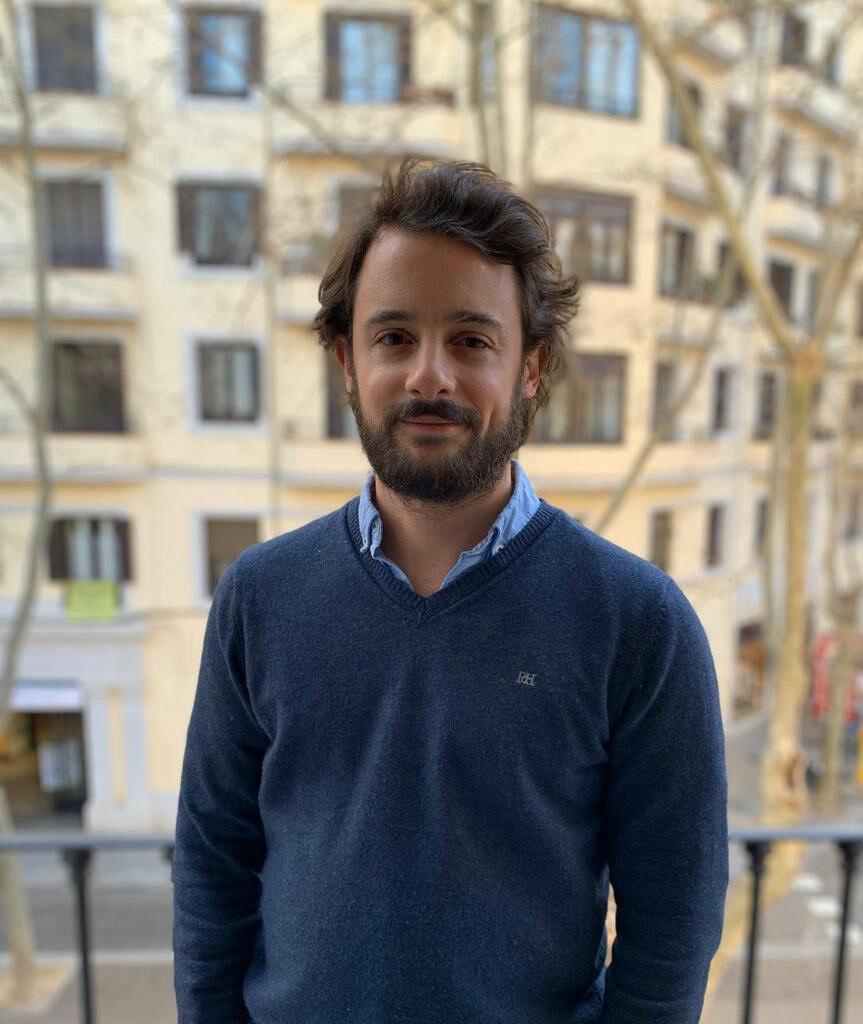
EBRAINS is collaborating on two projects aiming to improve the lives of stroke patients in the European Union and beyond.
PHRASE (Personalised Health cognitive assistance for RehAbilitation SystEm) and AISN (Integrating AI in Stroke Neurorehabilitation) focus on rehabilitation technology that will support at-home recovery, and AI integration, respectively.
To highlight these projects and the efforts going on behind the scenes, we spoke to Santiago Brandi, CEO of Eodyne, a company helping recovering stroke patients through rehabilitation gaming systems. Eodyne is the coordinator of the PHRASE project and a consortium member of the AISN project.
Brandi highlighted the global impact of stroke, noting a projected 10 million shortage of health workers by 2030, mostly in low- and lower-middle income countries, according to the World Health Organization, and the high costs of hospital readmissions, among other topics.
Here are the key highlights of our conversation.
What are the main challenges medical professionals are facing in treating stroke patients and what are the available solutions?
Santiago Brandi noticed there is one big problem that happens after discharge. When patients finish their treatment at the hospital and go home, they are not trained to take care of their own recovery.
They are not provided tools to continue training at home to prevent deterioration of their condition, and as a result they can lose a significant percentage of the function achieved at the hospital, which then has drastic effects on their quality of life.
It also has an impact on readmissions, which is one of the main factors that drives up hospital costs in this space.

To recover and function patients normally need intensive training. This can take up to six hours per day, which can prove challenging, with the shortage of medical staff we are facing.
Eodyne provides solutions for both the hospital and the period following discharge, when patients get home from the hospital.
People have been talking about tele-rehabilitation for decades, but it is very hard to scale.
This company created a Rehabilitation Gaming System (RGS), a science-based neuro-rehabilitation solution which runs on any device that patients have at home. It can be a laptop, a smartphone, a tablet or something else. They can use it themselves.
By allowing patients to use the devices they already have and know how to use, they reduce the learning curve for them to adopt the solutions. By predicting recovery and preventing deterioration, we can drastically reduce readmissions and costs for hospitals.
What is the PHRASE project aiming to do?
Through PHRASE, the consortium is putting together a pipeline for stroke data processing and management, that would allow us to go from extensive stroke databases and datasets, into patient modelling and brain modelling simulations. Then, those simulations and predictions would feed into the intervention solutions mentioned earlier by tailoring personalised training programmes that maximise patient outcomes.
This pipeline would allow us to increase our knowledge of how stroke operates, what the recovery dynamics are, and how to optimise patients’ training and recovery. Moreover, it seeks to shorten hospital stays, reducing personnel and transportation costs, and create the virtuous cycle of recovery.
How is the AISN project aiming to integrate AI in stroke rehabilitation?
This project coordinated by Radboud University builds on the work done so far as part of the PHRASE project, in the sense that the PHRASE project aims to undertake a preliminary effort in understanding recovery dynamics. AISN will be more focused on personalisation of treatment, through the combination of machine learning and advanced data analytics and simulation.
At the end of the day, everything we do is to have an impact on the lives of patients.
How EBRAINS Research Infrastructure supports these efforts
As part of the PHRASE project, EBRAINS is helping in the creation of this multi-platform solution that involves many satellite devices. There is a lot of work on the data flow as well: every time a patient does any rehabilitation session anywhere on any device, that is automatically uploaded to the cloud where it is processed into a database, and then all the algorithms start running. EBRAINS has contributed to the set up and management of these data flows.
Regarding the AISN project, EBRAINS provides AI integration support in stroke rehabilitation and collaborates with partners that are leaders in the relevant fields.
Discover how EBRAINS can enhance your stroke research - explore our Open Science Tools and Services and sign up here.
Create an account
EBRAINS is open and free. Sign up now for complete access to our tools and services.